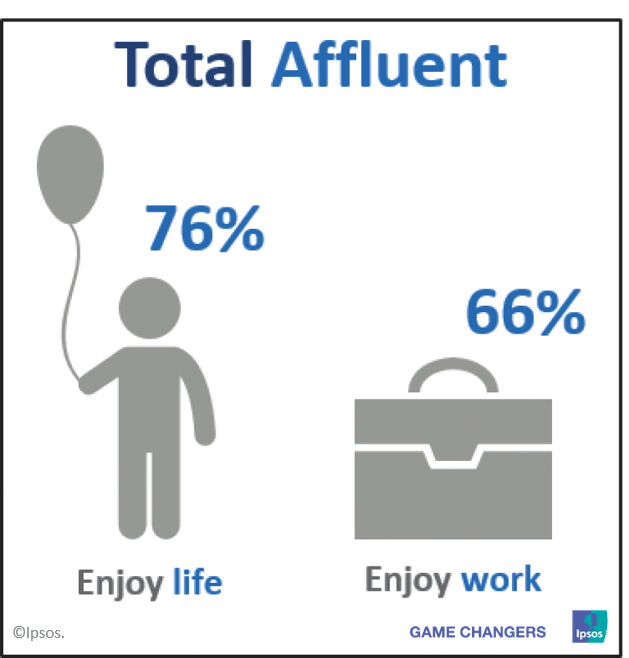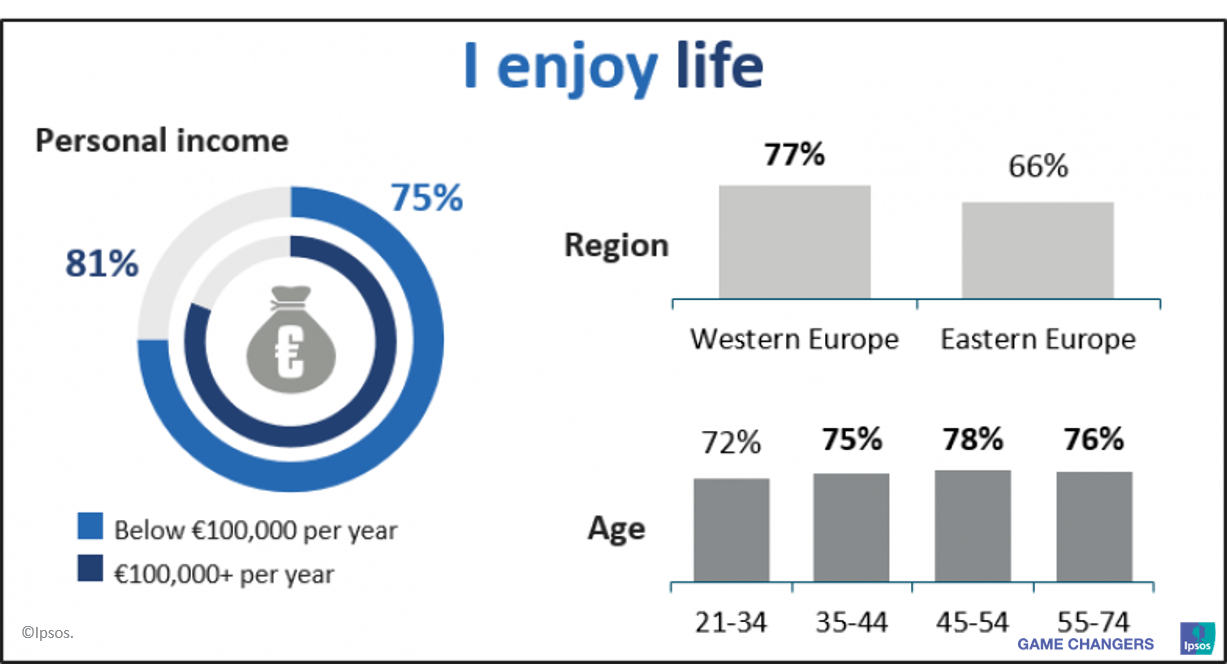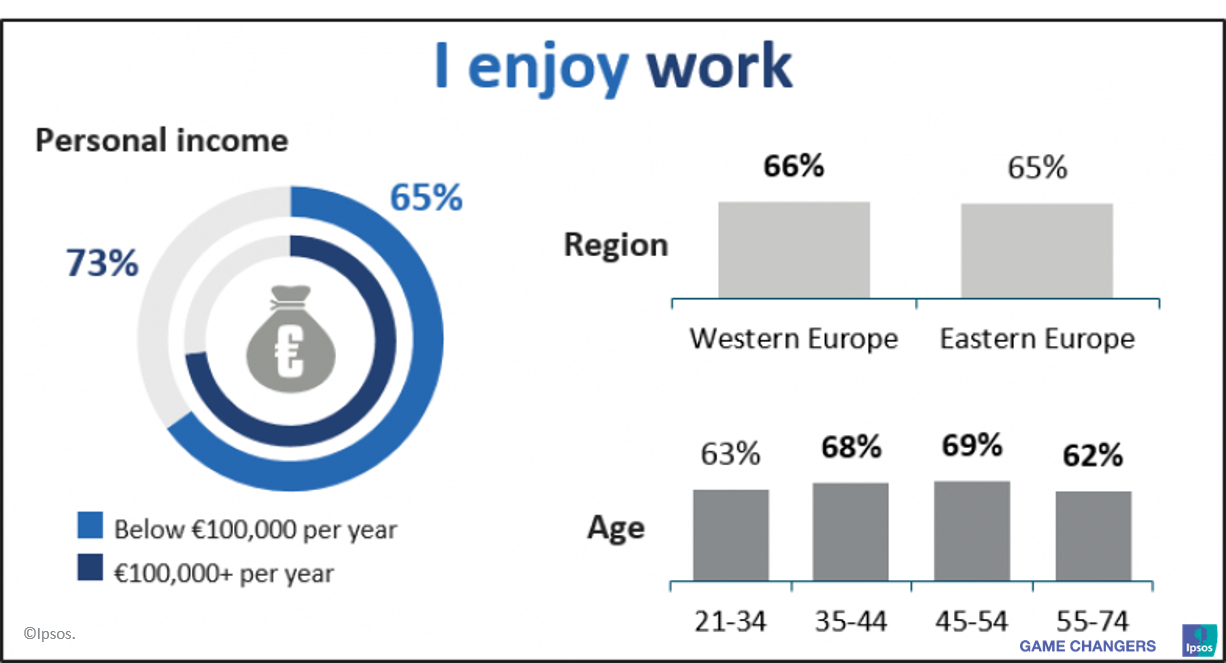Europe Affluents: Can Money Buy Happiness?
"Can money buy you happiness?" The Ipsos Affluent Europe Survey says: ‘Yes, it probably can’.
 Europe’s most Affluent enjoy life and work! According to the Ipsos Affluent Survey Europe 2016, 76% of the Affluent enjoy their life* and 66% enjoy work*. But are all Affluent equally happy? The answer is no.
Europe’s most Affluent enjoy life and work! According to the Ipsos Affluent Survey Europe 2016, 76% of the Affluent enjoy their life* and 66% enjoy work*. But are all Affluent equally happy? The answer is no.
Who has the greatest ‘joie de vivre’?
- Enjoyment of life is likely to have a link with wealth, those with a personal income of €100k+ are happier than their less affluent counterparts.
- Youth does not guarantee happiness. The more mature Affluents get more satisfaction out of life than their companions under 35.
- The Western European Affluents (77%) are happier than the Eastern European Affluents (66%).
- Sporty Affluents are happier than the Affluents that aren’t taking part in sports regularly.
- The Affluents that work over 70 hours a week enjoy their life more than the Affluents that work less.
- Feeling financially secure is related to happiness, because Affluents that feel financially secure are happier (85%) than Affluents that don’t feel financially secure (62%).

Is job satisfaction guaranteed?
- 4 out of 6 Affluent enjoy their work.
- Income and job satisfaction go hand in hand: those with a higher personal income are significantly happier with their jobs (73%) than those Affluents in the lower income segments (65%) – although they are still relatively wealthy in comparison to the average European.
- Job satisfaction is most likely to occur in middle age between the ages of 35 and 54.
- The Western European Affluents get equal job satisfaction as their Eastern European colleagues.
- Affluents that sport on a regular basis are more satisfied with their jobs than their counterparts that don’t (actively) take part in a sport.
- Affluents that work over 70 hours a week get more job satisfaction than Affluents that work less.
- Feeling financially secure has an impact on job satisfaction, as the Affluents that feel financially secure enjoy their work more (74%) than the Affluents that don’t feel financially secure (52%).




